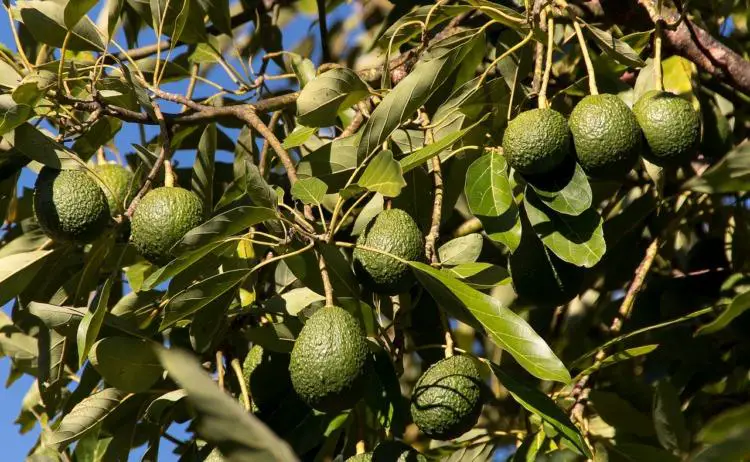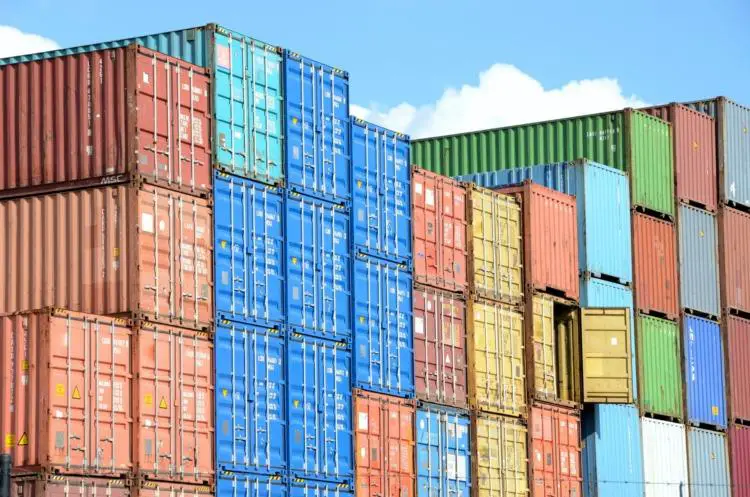- Kenya-Ethiopia Trade Relations: Legislators Advocate for Policy Alignment to Boost Ties
- Visualising the state of debt in Africa 2024
- Abu Dhabi radiates optimism as over 300 startups join AIM Congress 2024
- TLcom Capital Raises $154 million in Funding to Boost Its African Growth
- Africa’s $824Bn debt, resource-backed opaque loans slowing growth — AfDB
- LB Investment brings $1.2 trillion portfolio display to AIM Congress spotlight
- AmCham Summit kicks off, setting course for robust future of US-East Africa trade ties
- Why the UN is raising the red flag on the UK-Rwanda asylum treaty
Author: Wanjiku Njugunah
Wanjiku Njuguna is a Kenyan-based business reporter with experience of more than eight years.
The Board of Governors of the International Monetary Fund has approved a general allocation of Special Drawing Rights (SDRs) equivalent to US$650 billion (about SDR 456 billion), to boost global liquidity.
In a statement, IMF Managing Director Kristalina Georgieva termed the move as historic, adding that it is the largest SDR allocation in the history of the IMF.
The SDR is an international reserve asset created by the IMF to supplement the official reserves of its member countries.
The IMF adds that SDR is not a currency, but has a potential claim on the freely usable currencies of IMF members. As such, SDRs can provide a country with liquidity.
“Special Drawing Rights (SDRs) are an asset, though not money in the classic sense because they cannot be used to buy things. The value of an SDR is based on a basket of the world’s five leading currencies – the US …
Ride-hailing firm Bolt has raised $713 million in fresh funding.
In a statement, the European firm says it will use the funds to accelerate the expansion of its existing mobility and delivery products across its markets.
“The funds will go into expanding the company’s network of ride-hailing services, food delivery and micro mobility in Africa and Europe,” the company said.
According to the firm, these include investments towards enhancing safety features on the platform for drivers and riders, deepening vehicle ownership initiatives, driver and courier empowerment and sustainability projects.
Bolt will also use the funds to boost its new under 15-minute grocery delivery service, Bolt Market recently launched in Europe.
The new investment round now values Bolt at about $4.75 billion, which is more than double its last private valuation of $2 billion.
The funds were backed by new investors who include Sequoia, Tekne and Ghisallo, as well as Bolt’s …
A new report has revealed that biases in the estimation of solar production in Africa can lead to up to a 20 percent reduction in savings for African businesses.
This is according the Measuring Solar Irradiation in Africa: A case for change by CrossBoundary Energy which adds that such biases also cause between 1 and 2 percent reduction in the internal rate of return for solar developers and investors.
The report also indicates current methods that the solar industry uses for estimating solar production across the continent are unreliable.
Commenting on the report, Lenny Matei, co-author and Senior Project Engineer at CrossBoundary Energy, says that for most commercial and industrial (C&I) clients, a major factor in awarding projects is the electricity tariff and resulting savings offered.
Unilever and CrossBoundary Energy unveils 619 kWp solar plant in Kenya
He added that an often-overlooked factor is the estimated solar irradiation on site …
Kenya’s construction industry is projected to grow by up to 3.9 percent this year, according to a new report by the Architectural Association of Kenya (AAK).
The report, dubbed Status of the Built Environment report, AAK however cautions that the growth can only happen if there is no repeat of the strict lock down that were implemented in the country last year after the emergence of the coronavirus pandemic.
The report says growth will be driven by several factors among them a sharp recovery in output levels compared to periods when works were not permitted or were severely restricted in 2020.
“In 2021, the construction industry is expected to improve, assuming a slowdown in COVID-19 cases and recovery in the global economy,” the report notes.
Kenya to start construction of double decker highway as World Bank consents to funding
The report notes that the second quarter of the year, for …
The Kenya shilling depreciated by 0.7 percent against the US Dollar to close the month of July at Sh108.6, from Sh107.9 recorded at the end of June 2021, mostly attributable to increased dollar demand from general importers.
Data collected by Cytonn Investments further reveal that last week, the shilling depreciated by 0.4 percent against the US dollar to close the week at Sh108.6, from Sh108.2 recorded the previous week.
This was partly attributable to the build-up of dollar demand from energy importers as they meet their end of the month hard currency obligations.
On a year to date basis, the shilling has appreciated by 0.5 percent against the dollar, in comparison to the 7.7 percent depreciation recorded in 2020.
Despite the recent appreciation of the shilling, analysts from the investment firm expect the shilling to remain under pressure in 2021.
This will be as a result of several factors among …
Kenya has announced plans to revive small industries across the country, in a bid to spur value addition and market access for targeted products through projects led by the youth.
The Trade, Industrialization and Enterprise Development Principal Secretary Kirimi Kaberia said the ministry has completed mapping out villages and their unique products countrywide, according to Business Daily.
According to the PS, the Ministry is looking to attract more youth into manufacturing through cottage industries.
Kaberia said the government’s plan is to have functional industries in the next 12 months through transfer of resources in the rural areas.
“We want to have an environment where local people consume what they produce,” he said.
The plan, dubbed ‘one village, one product’, is part of Kenya’s Vision 2030.
Why Kenya’s manufacturing is uncompetitive
It is also part of the government’s plan of growing the contribution of the countries manufacturing to GDP from 11 …
The fall in consumer demand and closure of retail stores in high income countries due to the COVID-19 pandemic negatively impacted the textile and garment manufacturers in Ethiopia.
This is according to a new report by Deloitte that found that the manufacturing sector’s growth declined from 7.7 percent in 2019 to 7.5percent in 2020 mainly attributed to subdued demand in the key textile and garment sub-sector as a result of the closure of retail stores in high income countries.
A telephone survey by Deloitte found that 4,000 female garment workers revealed that four out of ten garment workers on Ethiopia’s flagship industrial park lost their jobs due to the COVID-19 pandemic in 2020.
The report also found that decline in capacity utilisation pushed firms in the industrial parks to re-invent their business models pivoting to manufacture of personal protective equipment (PPE).
However, a USD 6.5 million fund was set up …
A new report has revealed that Rwanda’s tourism revenues from international visitors dropped by an estimated 35 percent in 2020 compared to 2019, with the total of number of visitors dropping by 47.2 percent in 2020.
The report, Economic impact of the COVID-19 pandemic on East African economies by Deloitte indicates that in the months of April and May, Rwanda saw a drop of 100 percent in the number of international tourists following the announcement of the lockdown.
The losses related to Meetings, Conventions and Exhibitions (MICE) tourism were estimated to be around USD 80m for events that would have been hosted between Mar-2020 and Nov-2020.
The report shows that Rwanda benefitted on a global scale as from the third quarter of 2020 after being included on the European Union’s list of ‘epidemiologically safe’ countries for travel.
“The Rwanda Development Board (RDB) continues to promote tourism in 2021. The board …
The agriculture sector in Uganda is estimated to have contracted by close to 1 percent due to reduced export demand associated with COVID-19 restrictions and decreased output caused by the regional desert locust invasion.
This is according to a study conducted by Deloitte which reveals that agriculture remains a key economic sector and one of the largest employers in the country, responsible for 70.3 percent of the labour force (with the majority in subsistence farming) and accounting for almost 28 percent of real GDP.
The study says that 2020 saw a significant decline in effective domestic demand for food following the closure of schools and the hospitality industry.
The massive loss of employment further led to reduced household incomes with consumers opting for less food and cheaper, less nutrient-rich food items.
It also finds that the number of food insecure people in the country increased by 1.1 million to 16.4 …
Exports of goods from Kenya remained strong, growing by 11.1 percent in the first half of 2021 compared to a similar period in 2020.
This is according to fresh data by Central Bank of Kenya which indicates that receipts from exports of horticulture and manufactured goods rose by 29.4 percent and 45.2 percent, respectively, in the first half of 2021 compared to a similar period in 2020.
However, receipts from tea exports declined by 5.5 percent, partly due to the impact of accelerated purchases in 2020.
Travel and transport receipts continued to recover in 2021 with the resumption of international travel.
Remittances were robust at USD305.9 million in June 2021, and were 20.4 percent higher in the first half of 2021 compared to a similar period in 2020.
The value of Export of Goods and Services Increase By 9.8%
More findings
Separate data released earlier this month by Deloitte revealed …














